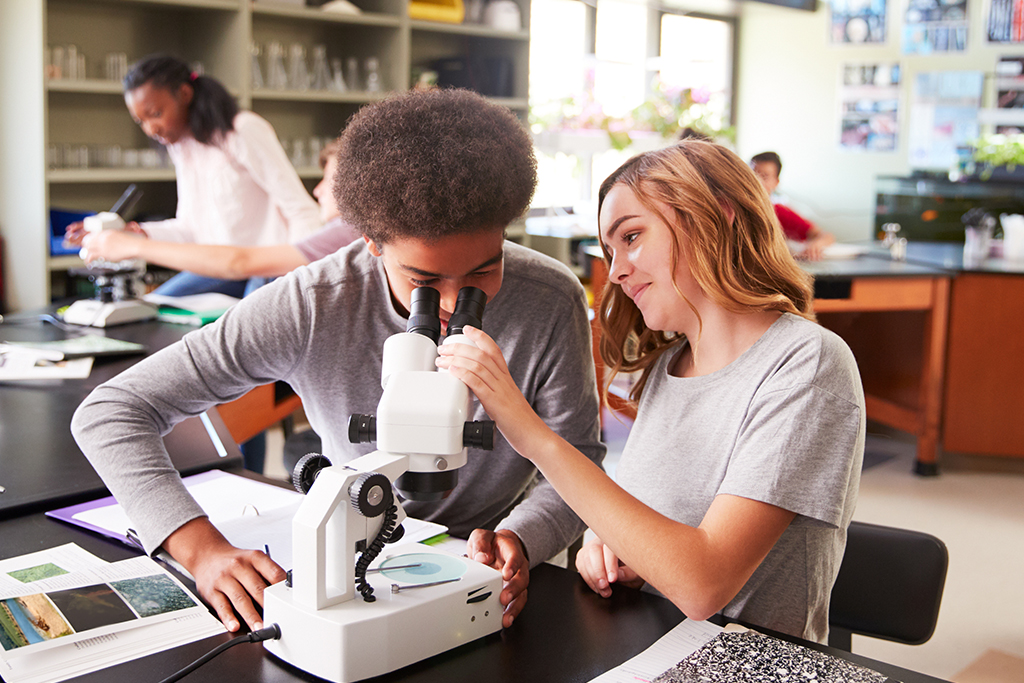Biology I + Lab
Introductory Biology I
Lab for Introductory Biology I
4 College Credits (3 for lecture, 1 for lab) | UT Course Codes: BIO 311C, BIO 106M | TCCN Courses: BIOL 1306, BIOL 1106 | Core Code: 030
High School Course Prerequisites: Biology and Chemistry

Think like a scientist and use critical thinking, scientific communication and graphing skills.
This introductory course and the accompanying lab focus on three main areas of molecular and cellular biology: the structure and function of biomolecules; the flow of energy through living systems; and how genetic information is expressed and transmitted within and between cells.
Students hone their skills through simulations, models, group work and lab experiences. They also learn how to communicate conclusions to others and how to use critical feedback to improve their scientific thinking.
Course Structure
Through Flipped Learning, students develop scientific thinking skills and active learning in an inclusive classroom environment. Additionally, students are guided in the development and integration of verbal, written and graphical communication skills.
Big Ideas
- Structure relates to function: basics of biochemistry, the behavior of molecules in biological systems, fundamental concepts of intramolecular chemical bonding, higher-order intermolecular interactions, cell membranes, cell structures, cell-to-cell communication
- Energy is transformed in living systems: electromagnetic energy, chemical bond energy, photosynthesis, cellular respiration, the role of enzymes in metabolism, errors of metabolic pathways
- Genetic information is expressed and transmitted: the relationship between DNA, RNA and proteins; gene expression and the science of recombinant DNA; the regulation of protein synthesis and its role in causing human disease; the transmission of DNA via mitosis, meiosis and fertilization
- Critical thinking: analytical skills and scientific reasoning; making and communicating scientific hypotheses and decision-making; quantitative reasoning; interpreting and analyzing data
- Laboratory-based scientific skills: lab skills; critical information evaluation; written and oral communication; the observation of biological concepts in action
What Students Gain
- Data literacy
- Foundational knowledge applicable to any STEM major
- Critical and quantitative thinking skills

What Students Say
“I may have to take more advanced sciences in college, so this has helped build a foundation for those courses.”
